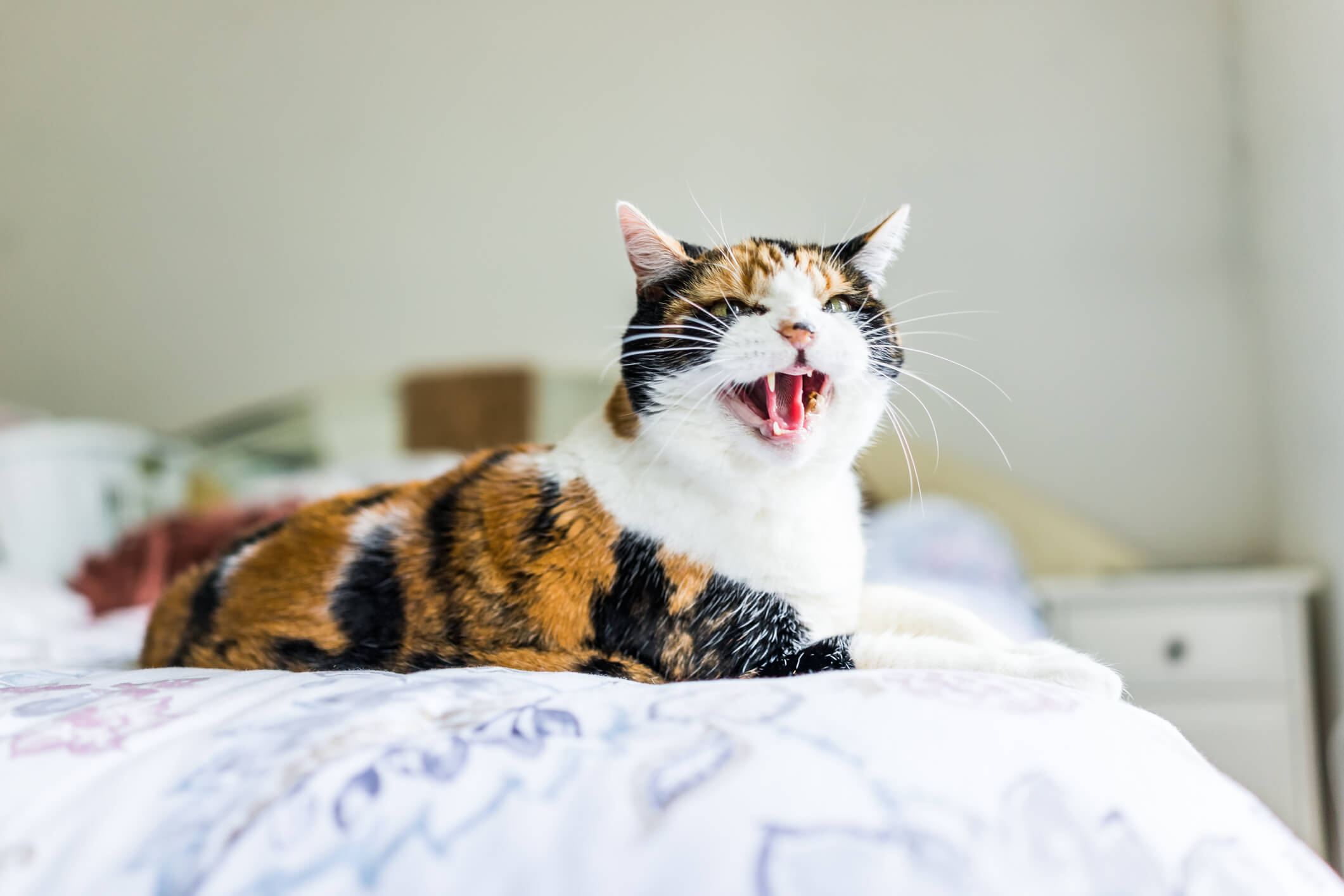
Top 4 Signs of Feline Hyperthyroidism to Look For
Weight loss, hyperactivity, aggression, digestive issues—we can all agree these symptoms are anything but normal in cats. Combined together, they can indicate the presence of a thyroid condition called hyperthyroidism. This disease means the thyroid gland is overproducing hormones that regulate the metabolism and your kitty’s energy levels.
Get in touch with a vet if your cat starts exhibiting these four common signs of hyperthyroidism.
1. Weight loss with increased appetite
Cats with hyperthyroidism have an extremely large appetite. Young kittens are expected to eat all the time because they’re still growing and need the extra nutrients. However, adult and senior cats aren’t supposed to eat this much. Pet parents should be concerned if they see a sudden change in the cat’s normal appetite. Despite their drastic intake of food, cats with hyperthyroidism also experience weight loss.
Hyperthyroidism causes an increased appetite because the abnormally high thyroid hormone levels trigger the body to burn energy at an accelerated rate. In other words, hyperthyroidism is associated with a fast metabolism. Cats will beg for more food in an attempt to keep up with these energy demands. When they can’t get enough food, the body pulls from its fat reserves and causes the kitty to lose weight.
2. Excessive energy levels
A heightened metabolism doesn’t just make cats hungry. When the body burns through nutrients very fast, cats with hyperthyroidism have excessive levels of bottled-up energy they have to expend by any means possible. While most cats like to lounge around and snooze, hyperthyroid cats are constantly on the move. A 10-year-old cat shouldn’t have the energy of a kitten!
Owners of hyperthyroid cats will notice their feline friends are bursting with energy. They’re constantly sprinting around the home and looking for toys to play with. Another telltale sign of hyperthyroidism is yowling in the middle of the night. Cats are most active when we’re asleep, which means those with hyperthyroidism are even more active! A cat who’s regularly keeping you up at night with their excessive vocalization is due for a check-in with the vet.

3. Unusually aggressive behavior
Some cats are naturally aggressive, and some are not. You know your kitty better than anyone else and should notice the second they start acting out of character. Hyperthyroidism can turn a sweet, cuddly kitty into one that hisses at your approach. Hyperthyroid cats that normally get along with other pets in the house might all of a sudden pick fights with them. During this time, owners will notice a lot more hissing, biting, scratching and agitated body language.
The excessive energy associated with hyperthyroidism can cause kitties to lash out in unhealthy ways. It’s important to remember they’re the same cat they’ve always been. The problem is that high levels of thyroid hormone produce more energy than they know what to do with. If your kitty hisses at you, try not to take it personally—that’s just the hyperthyroidism talking!
4. Frequent urination and digestive problems
Cats with hyperthyroidism develop extreme thirst. As a result, you’ll see them lapping from the water bowl a lot more frequently than healthy cats in the household. Hyperthyroidism makes cats drink a lot more water because the body is increasing the rate at which it flushes out toxins through urine. The body is eliminating a high volume of liquid, making your cat dehydrated. They try to drink more water to compensate for this loss.
Since they’re drinking a lot more water, hyperthyroid cats are urinating a lot more often, too. This condition may also cause problems with the digestive system like chronic vomiting and diarrhea.
When your cat really needs to pee, they might not make it to the litter box in time! Diarrhea is also very difficult for cats to control. As a result, pet parents might get very frustrated to see their cat inappropriately eliminating outside the litter box. Owners mistakenly label this issue as an act of defiance when really it’s a sign the cat needs veterinary help. While the mess is time consuming to clean up, keep in mind this behavior is merely the result of a larger issue.
Identifying one or more of these signs in your cat is the first step towards proper treatment. It’s worth noting that a few symptoms might overlap with other health conditions, so always seek a vet’s diagnosis before attempting to make your kitty feel better. Thankfully, hyperthyroidism is very treatable! Paying attention to the warning signs will put your cat well on their way to recovery.


